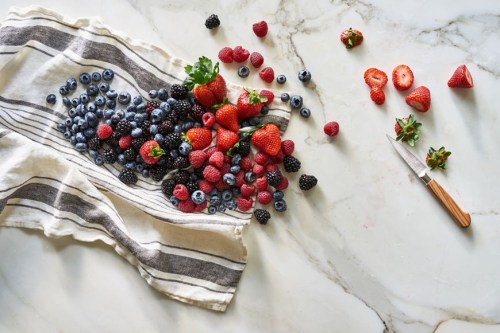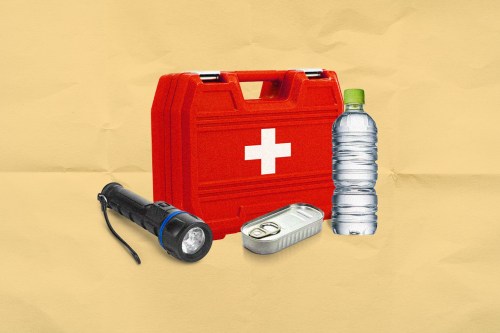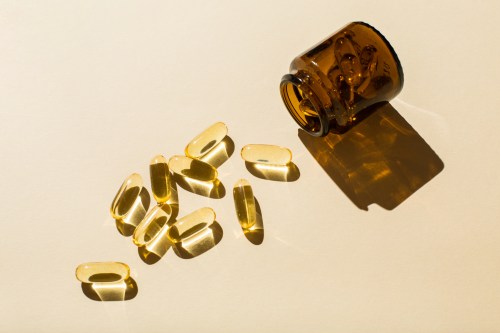You can avoid romaine lettuce (for now), double-check expiration dates, and frequently microwave your sponge, but there’s another important kitchen-cleaning staple that can sabotage even the best laid plans. That kitchen towel you keep around for miscellaneous tasks is a breeding ground for bacteria and health-sabotaging germs, according to a new study.
The researchers found that 49 percent of the towels they examined contained traces of bacteria like E. coli, staphylococcus aureus, and other bacteria linked to food-poisoning symptoms.
For a study presented at the American Society for Microbiology in Atlanta on June 9, researchers examined 100 kitchen towels after a month of use to determine their cleanliness and bacterial growth, according to CNN. The researchers found that 49 percent of the towels they examined contained traces of bacteria like E. coli, staphylococcus aureus (AKA staph infections), and other bacteria linked to food-poisoning symptoms such as fever, vomiting, and diarrhea. Overall, the amount and type of bacteria that was found across the towels differed depending on people’s eating and diet habits (namely, how much meat they consumed), as well as the size of the household.
The study also found that, like sponges, dampness contributes to more bacterial growth, according to researcher Susheela Biranjia-Hurdoyal, PhD, senior lecturer of health sciences at the University of Mauritius. “Humid towels and multipurpose usage of towels should be discouraged,” she said. “Moist towels could be very important in promoting the growth of potential pathogens responsible for food poisoning.”
However, this doesn’t mean you need to ditch your towels cold turkey—they are much more eco-friendly than single-use paper towels, after all! You just need to stock up on enough that you can implement a rotation of washing towels every few days—and be especially cautious about using your kitchen towels near raw meat.
Since your kitchen sponge is full of germs, this is how you should ensure it’s as clean as possible.
Sign Up for Our Daily Newsletter
Get all the latest in wellness, trends, food, fitness, beauty, and more delivered right to your inbox.
Got it, you've been added to our email list.










